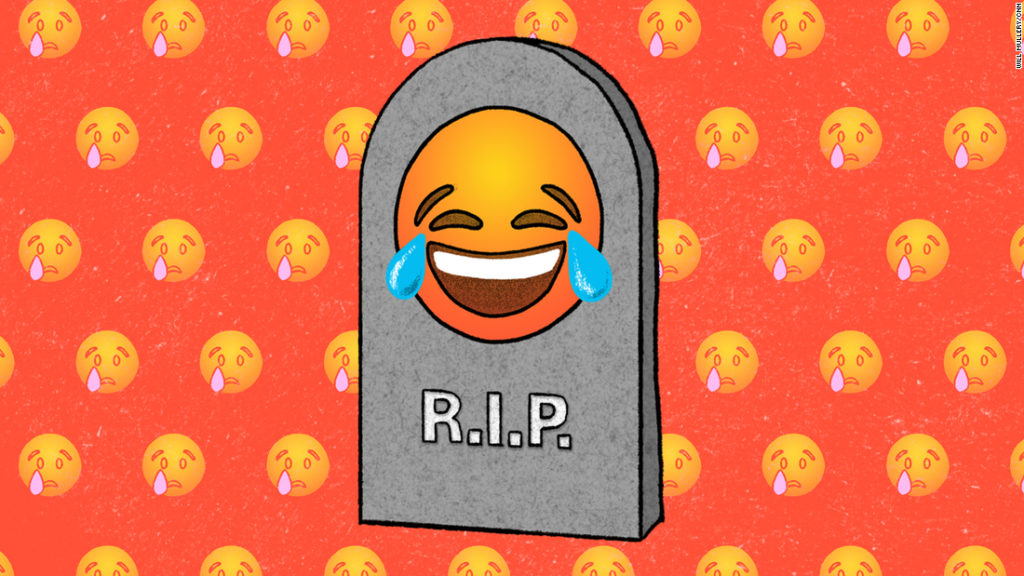“What’s wrong with the laughing emoji[?],” one user asked in a TikTok comment. Another responded: “it’s so off.” On a different video of a woman saying she’s cut back on using it after learning kids don’t, one teen commented: “As a 15 year old I say you should use that emoji bc [because] we sure aren’t going to.”
“I use everything but the laughing emoji,” 21-year-old Walid Mohammed told CNN Business. “I stopped using it a while back because I saw older people using it, like my mom, my older siblings and just older people in general.”
For many Gen Z-ers, the 💀 emoji has become a popular replacement for conveying laughter. It’s the visual version of the slang phrase “I’m dead” or “I’m dying,” which signifies something is very funny. Other acceptable alternatives: the 😭 emoji (officially called “Loudly Crying Face”), or just writing “lol” (laughing out loud) or “lmao” (laughing my, well, you probably know the rest).
Seventeen-year-old Xavier Martin called the 😂 emoji “bland” and said “not too many people” his age use it. Stacy Thiru, 21, prefers the real crying emoji because it shows a more extreme emotion and feels more dramatic. She said she couldn’t even find the laughing crying emoji on her iPhone’s keyboard.
A similar emoji, called “Rolling on the Floor Laughing” (🤣), is also no longer in vogue. When asked about that emoji over a video call, Thiru visibly grimaced. “I don’t like that one,” she said. “My mom doesn’t even use it.”
“Tears of Joy was a victim of its own success,” said Gretchen McCulloch, an internet linguist and author of “Because Internet: Understanding the New Rules of Language.”
“If you indicate digital laughter for years and years in the same way, it starts to feel insincere. … The hyperbole gets worn out through continued use,” she said. That’s why Gen Zers may be looking to fresh and novel ways to signal they’re laughing through different ways.
Sometimes teens and twenty-somethings use emoji — like the laughing crying one — ironically, such as by sending six or seven of them in a row to friends, to exaggerate it. But, overall, that emoji is a no-go.
“For Gen Z, it’s like the same thing as having an Android,” said Mohammed.
You may also like
-
Afghanistan: Civilian casualties hit record high amid US withdrawal, UN says
-
How Taiwan is trying to defend against a cyber ‘World War III’
-
Pandemic travel news this week: Quarantine escapes and airplane disguises
-
Why would anyone trust Brexit Britain again?
-
Black fungus: A second crisis is killing survivors of India’s worst Covid wave

